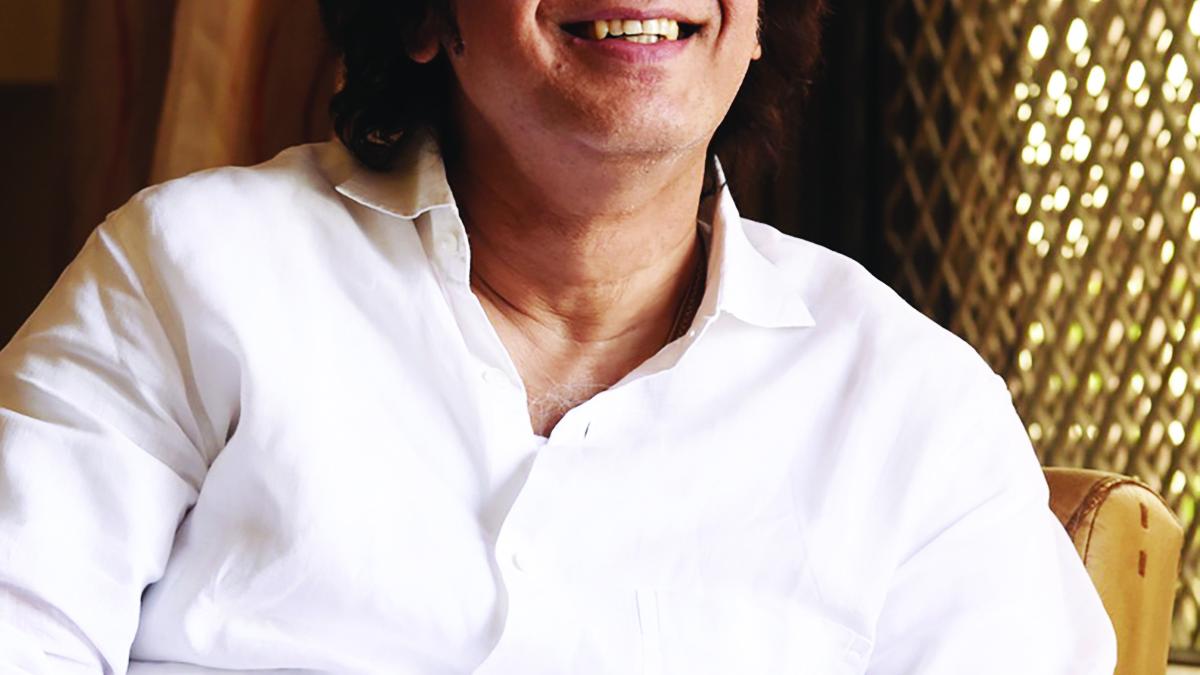The original Shakti group: Zakir, John MacLaughlin, L. Shankar and Vikku Vinayakram.
| Photo Credit:
Special Arrangement
The master-percussionist made the tabla his own in a way that the modest drum set meticulously followed his instructions and was ever willing to roll out his experiments. But his music was not just about him; he constantly worked to set up a close-knit family of artistes. Over the years, the family just kept growing. Most of its members were promising enthusiasts, who, taking a cue from their Zakir bhai, wanted to engage with a music that shunned labels and despised divides. So, from a prolific and avant-garde performer, Zakir Hussain turned into a compassionate mentor, powerful influencer and a guiding force. His passing is not only being mourned by his family, collaborators and admirers, but also by a huge and formidable line up of young musicians determined to keep alive his creative vision.
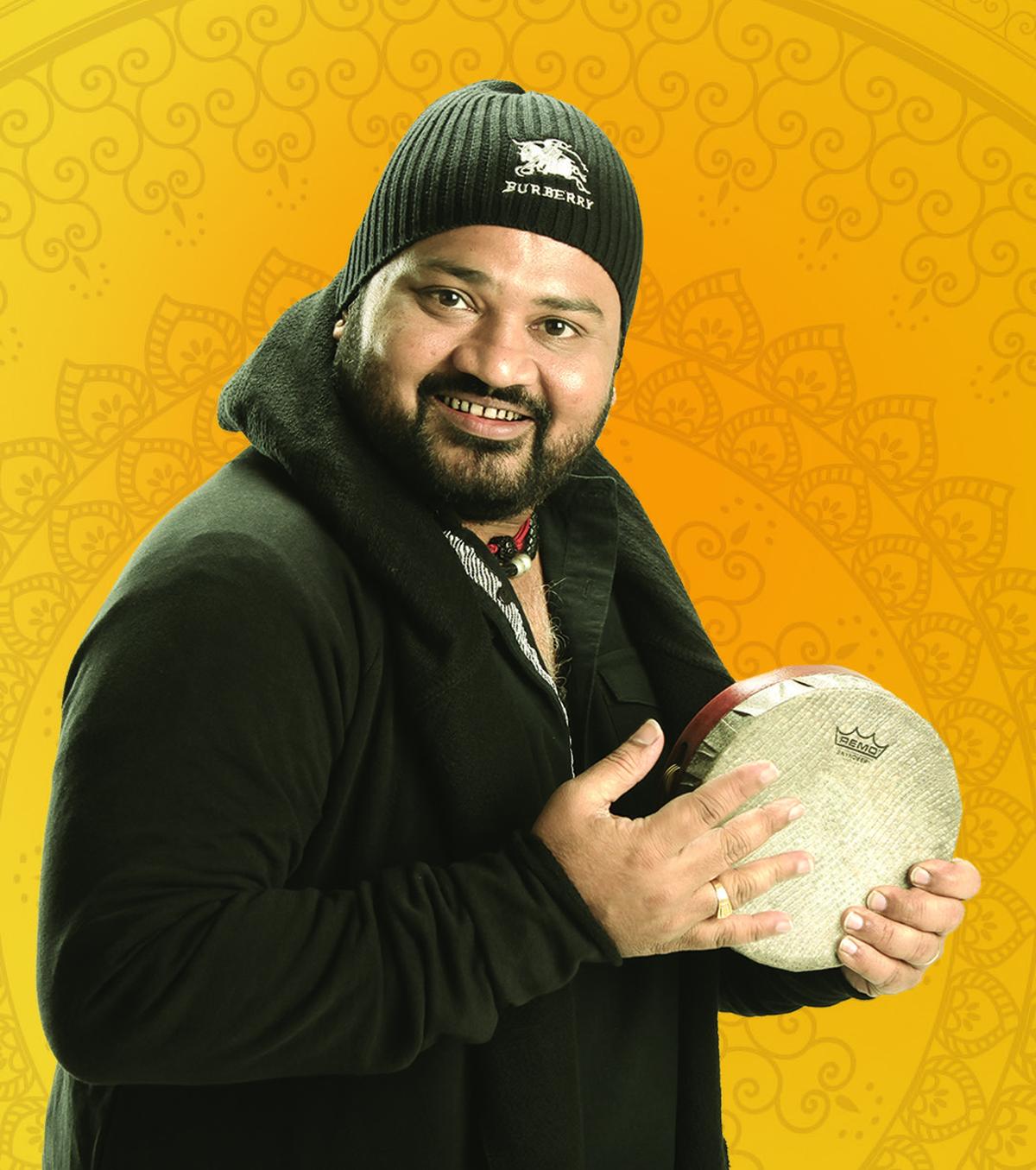
Kanjira exponent Selva Ganesh
| Photo Credit:
Special Arrangement
Whatever I am today is all because of him. Had he not met my ghatam virtuoso-father Vikku Vinayakaram and decided to make him a part of Shakti, our family of musicians would have never been on the world stage. My father and I are exponents of instruments, which in Carnatic parlance are referred to as upa pakkavadyam (secondary accompanying instruments). Zakir bhai pulled us out of our allotted space behind the main artistes in a kutcheri and placed us alongside international stars in cross-genre ensembles. Since then, we have never looked back.
Selva Ganesh, Kanjira
Sai Shravanam
| Photo Credit:
Special Arrangement
I was seven when the Taj Mahal tea jingle, which introduced Zakir Hussain to many in the South, aired on television. Despite being in Madras, a city soaked in Carnatic music, the sound of Ustadji’s tabla ruled my idea of sound.
My self-learning journey started by listening to his recordings on loop, and reproducing them through trial and error. My ears were the only learning tool. I had no way of ‘seeing’ his playing, except when Doordarshan telecasted his concerts.
Two years later, I was part of a children’s group performing before Ustadji’s concert with Mandolin U Shrinivas at The Music Academy. I saw him pay attention to my playing, while his hands kept the beat. Later, he spotted me in a corner, and lifted me in his arms. “From whom are you learning the tabla?” he asked. I pointed towards him. His eyebrows went up, and he told my mother: “Bring him to Bombay and my father and I will personally teach him.” Our family could not take that up, but his words became my inspiration.
A decade later, dancer Chitra Visweswaran and her husband took me to Bombay for a concert, and then to his house. I told him why I could not move to Bombay then, and he said: “Sound is the greatest teacher. You don’t need to see me. I will always be your guru.” Ours was a manaseega (from the heart) guru-sishya bonding.
If I knew he was coming to the city, I would wait outside Taj Coromandel, where he always stayed. He’d ask how long I’d been waiting, and tell me to bring my instrument. He appreciated how I maintained its sound, and would mostly use it for his concert. He would teach me a few bols, and mend my self-learning.
When I began my journey in sound, he blessed me and said: “Sound has always guided you. You will serve sound for life.” When it was 15 years of my Resound India Studios, he asked me to bring along a paper and pencil, and wrote a note of encouragement. He also left me with a lesson for life: ‘Artistes are invisible. Sound is eternal’.
Sai Shravanam, Music producer and sound engineer
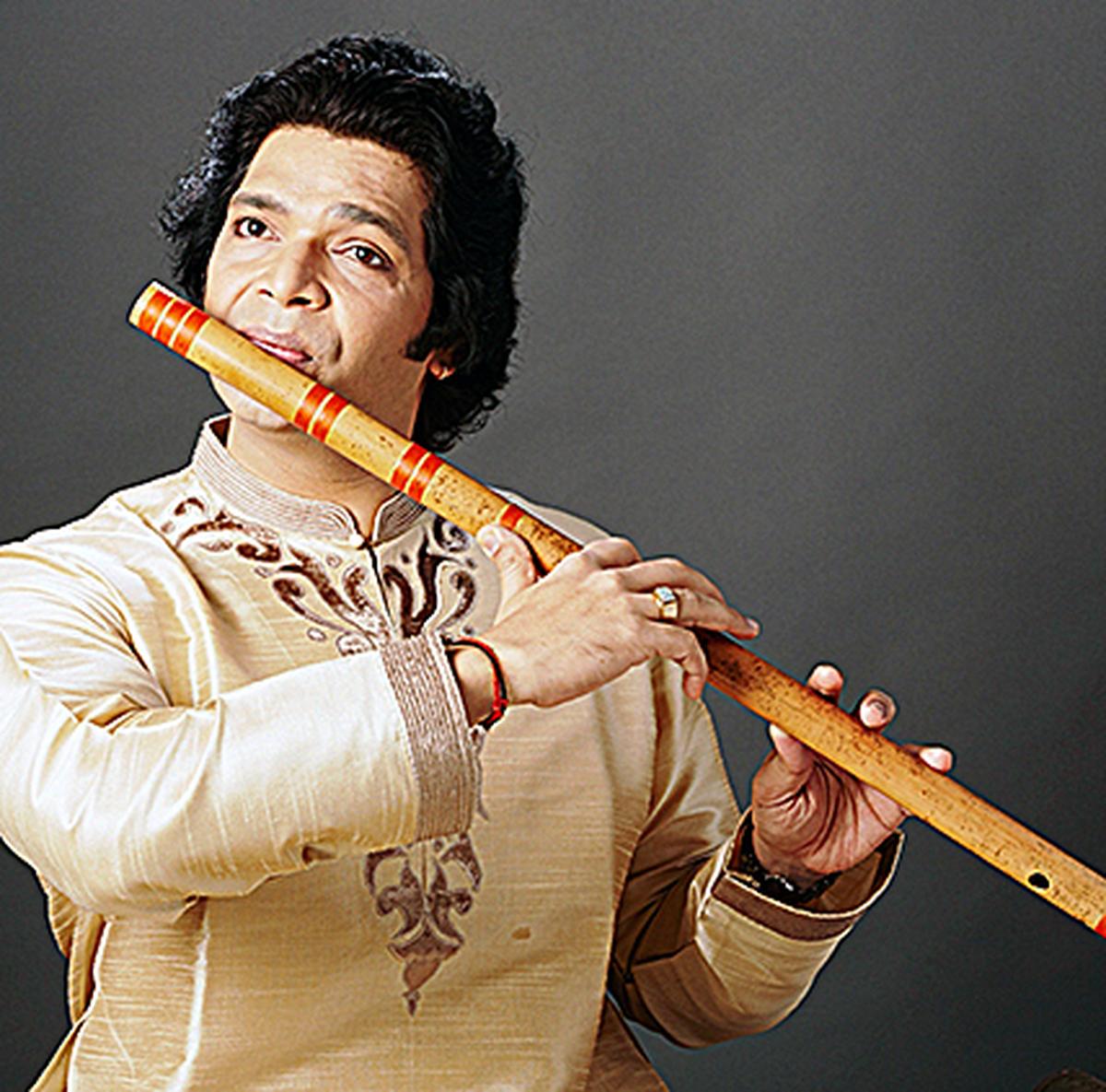
Flautist Rakesh Chaurasia
| Photo Credit:
Special Arrangement
He deeply impacted my approach, thought process and presentation. He would often guide me on which raga to play or how to play certain notes, drawing examples from legendary artistes such as my guru and uncle Pt. Hari Prasad Chaurasia or Kishori Amonkar. But he would never force his opinion upon you. He would guide you only when he thought you needed it. His life and art was all about sharing and caring. I was extremely touched by the way he made me part of the 2024 Grammy winning ensemble featuring him, American banjo player Bela Fleck and American bassist Edgar Meyer. We won for ‘Pashto’ and ‘As we Speak’. When these works were being conceived, I was in the U.S. performing concerts. He wanted Bela and Edgar to hear my playing and soon we were all performing together. And then, as they say, the rest is history.
Rakesh Chaurasia, Flute
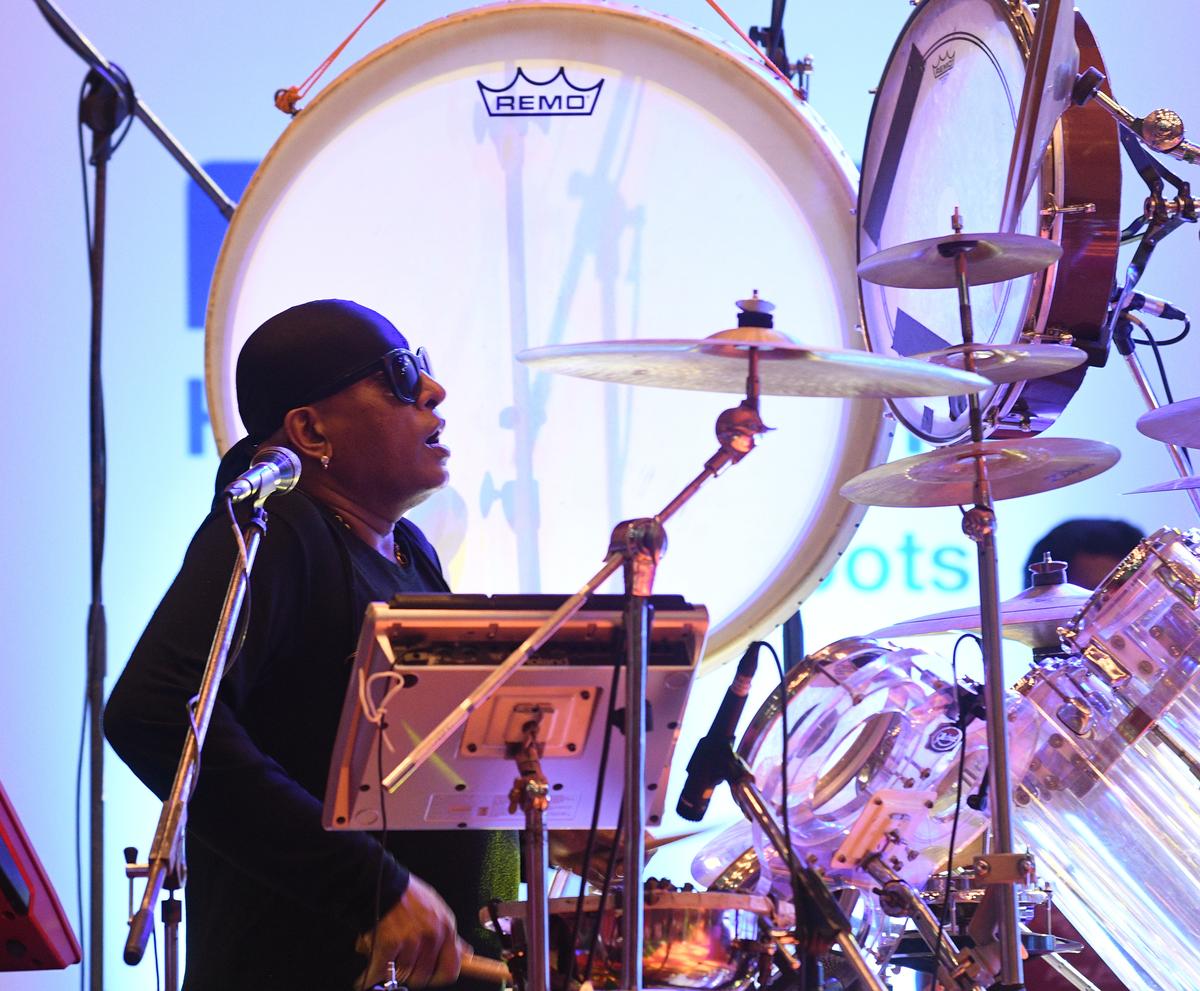
Drums Sivamani
| Photo Credit:
G. Moorthy
Zakir bhai spotted my drumming talent and invited me to share the stage with him. Since then, his rhythm masterclass helped me reach heights I had never imagined I could scale. He taught me how to put the self behind in collaborative set-ups. My bond with him was the same that I have with god — of devotion and surrender.
Sivamani Drums
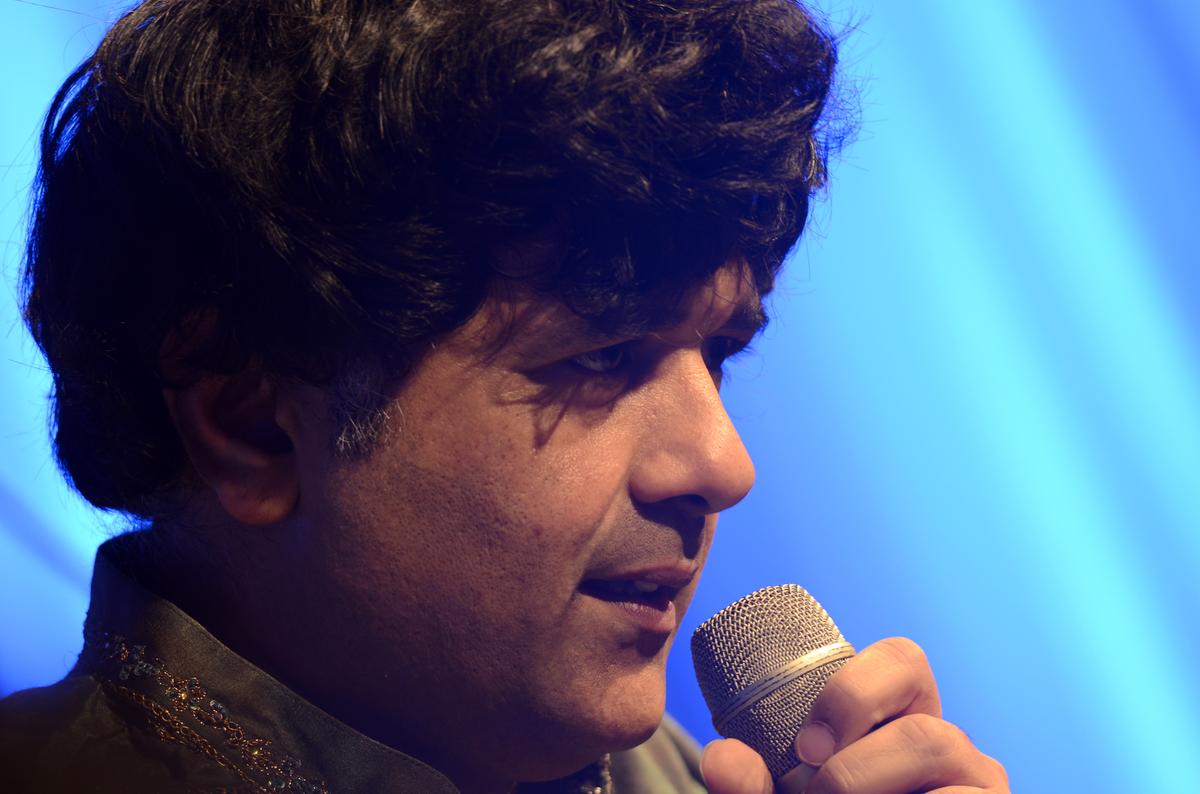
Violinist Ganesh Rajagopalan
| Photo Credit:
Nagara Gopal
Over the past 15 years that I had been performing with Zakirji, I gained precious insights into Indian classical and world music. I was part of several of his international collaborations and toured the world extensively with him. He had the uncanny knack of making every member of his musical team comfortable and happy. He knew that was the only way you could get the best out of anyone. When Shankar Mahadevan, Selva Ganesh and I walked up to receive the Grammy as part of Shakti in February this year, we never knew this would be Zakirji’s precious parting gift to us.
Ganesh Rajagopalan, Violin
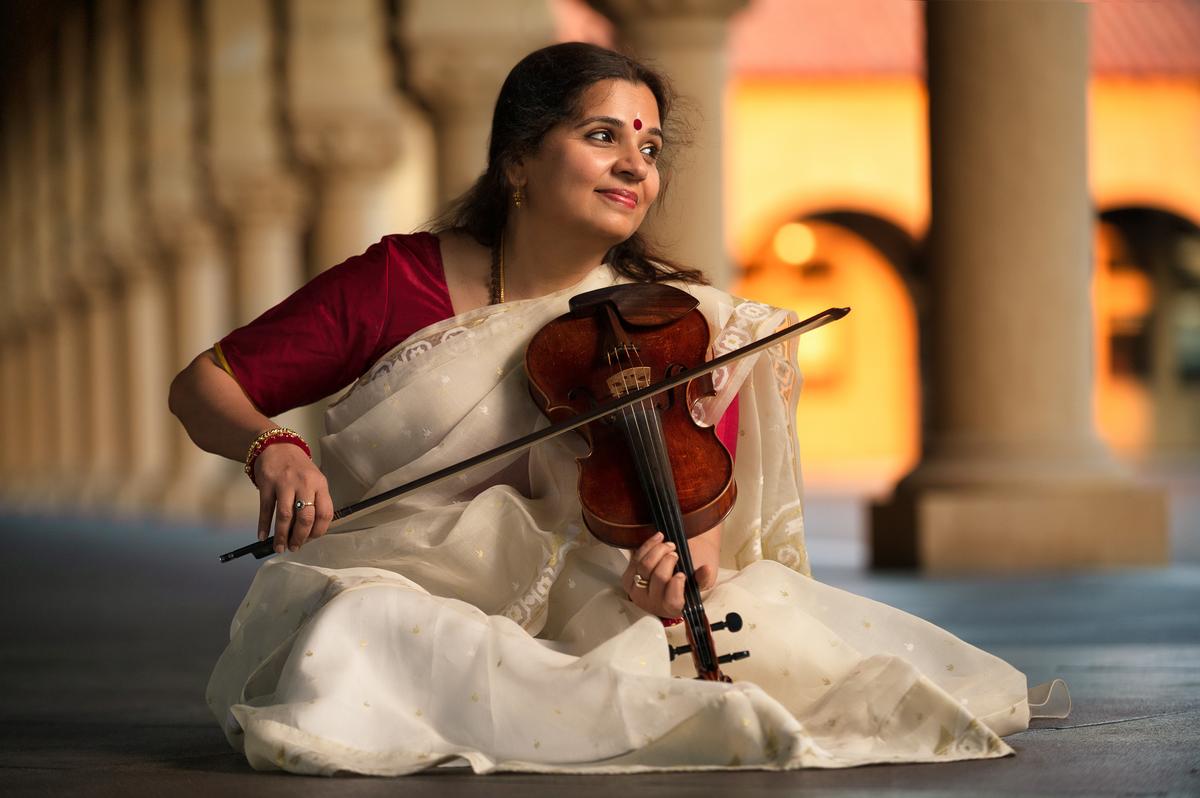
Violinist Kala Ramnath
| Photo Credit:
Special Arrangement
Affectionate, humble and empathetic. For me, these three words define the man behind the maestro. Having lost my father early in life, I always looked up to Zakirji to navigate the labyrinth of life and art. Forever looking to promote new talent, I remember how he made me play at Pt. Ravi Shankar’s 75th birthday celebration. I can also never forget what he told me when I began to perform, ‘don’t try to ape your aunt’s (well-known violinist N. Rajam) style, come up with a distinct approach. That pushed me to think and create my own path.
Kala Ramnath, Violin
Filmmaker Vipin Sharma
| Photo Credit:
Special Arrangement
I have some wonderful memories of him of the time we spent together on a small island called Batam, Indonesia! Monkey Man had started with a prayer we each said to our own supreme powers in our hearts and lighted diyas at our very first location, which happened to be the temple of Ardhnarishwara, where the sequence between Dev Patel and Zakir bhai was shot. He had come all the way from LA to shoot. He quarantined himself for over a week and joined us for this ritual.

Zakir on the sets of Monkey Man
| Photo Credit:
Special Arrangement
It was incredible to see him play the tabla the entire day for the sequence. He kept us all glued to the rhythms he was creating. Many probably didn’t know who he was but they all were mesmerised. I sat right next to him and heard him play almost nonstop. He hardly moved from his place. Whether the camera was on or not he kept playing. It showed how big a part of his life were the two little drums. Almost an extension of his body. He spoke little. His music did all the talking. I am sure wherever you are Zakir bhai you are creating magic with your hands! Music must go on and it will in your memory forever.
Vipin Sharma Actor and filmmaker
Published – December 21, 2024 04:32 pm IST
Source link
#Goodbye #Zakir #bhai #remain #guiding #light
